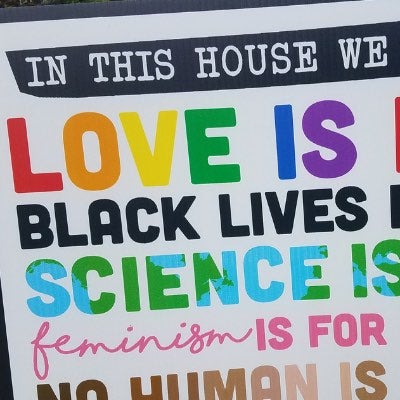2026 Winter J Term Courses
Use our J Term Course Finder to get descriptions, instructor contact information, and if available, a syllabus. Some syllabi may be past versions that provide a relative idea of course expectations, and may be subject to change. Please note that many on-campus and online-synchronous courses will also include asynchronous content and required assignments. For the most up-to-date course information and to register, use e-Campus, URI’s online system.
Learn more about URI Winter J Term course types, including asynchronous, synchronous, and blended.
J Term Course Finder
AAF 399: Introduction to Multicultural Psychology
Introduction to multiculturalism as major paradigm.

October 1, 2025
ACC 199: Financial Accounting for Nonbusiness Majors
Basic concepts used in financial accounting for business organizations.

September 25, 2025
AFS 105G: Food from the Sea
Introduction to capture fisheries and aquaculture and their contribution to food supply, methods of production, environmental and ecological considerations, practices employed, processing, and marketing, with a regional New England focus.
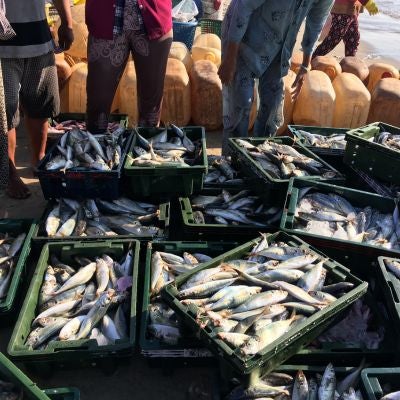
March 5, 2025
AFS 132G: Sustainable Agriculture, Food Systems, and Society
Food is essential to life, and a foundation of civilization.

APG 325G: American Dilemma: Who “Owns” Native America?
Examines researchers? perceived rights to ownership of Native American bodies, languages, and human remains.
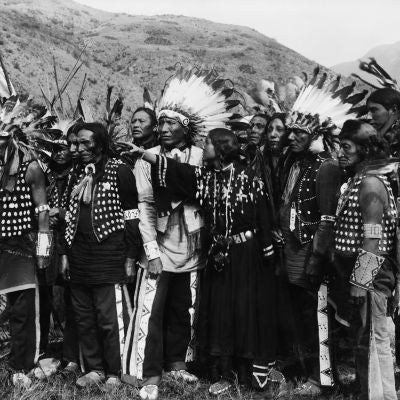
ART 361: Modern Art
Investigates major movements of European and American painting, sculpture, printmaking, and photography from the late nineteenth to the mid-twentieth century.

AST 118: Introductory Astronomy: The Solar System
Celestial sphere, Earth, formation of and motions and characteristics of objects in solar system, the Sun, exoplanets, and search for extraterrestrial life.

AVS 101: Introduction to Animal Science
Animal industry's role in world and national economy; inheritance, growth, physiology, nutrition, and diseases of domestic animals and poultry; geographic distribution and marketing of animal products.

AVS 132G: Sustainable Agriculture, Food Systems, and Society
Food is essential to life, and a foundation of civilization.

BAI 310: (BUS) Business Data Analysis with Excel
Introduces intermediate and advanced spreadsheet concepts for business applications.

BIO 181G: The Information Age: From Politics to Medicine
How big data affects our society, from advertising to politics to medicine.

BIO 220: Fundamentals of Human Anatomy and Physiology I
Explores the integration of the structures and functions of the human organism through a systems approach; including the biochemical properties of the cell, integumentary, muscular, skeletal, and nervous systems.
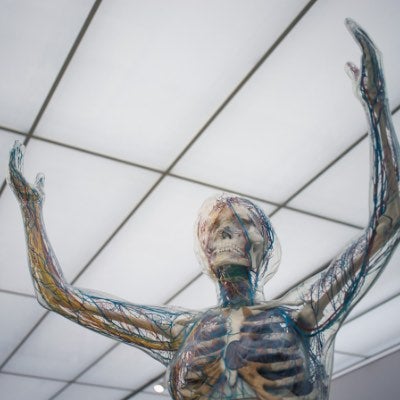
December 3, 2025
BIO 220: Fundamentals of Human Anatomy and Physiology I
Explores the integration of the structures and functions of the human organism through a systems approach; including the biochemical properties of the cell, integumentary, muscular, skeletal, and nervous systems.
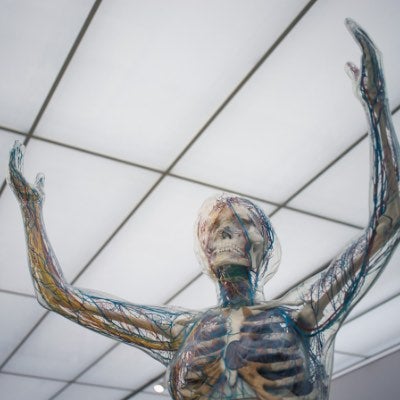
March 5, 2025
BIO 222: Fundamentals of Human Anatomy and Physiology II
Explores the integration of the structures and functions of the human organism through a systems approach; including senses, endocrine, cardiovascular, lymphatic, immune, respiratory, digestive, urinary, and reproductive.
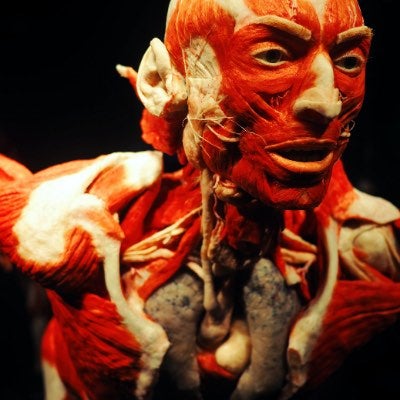
BIO 331: Parasitology
An introduction to the biology of parasitic organisms, including life cycles, infection pathways, and impacts on hosts.
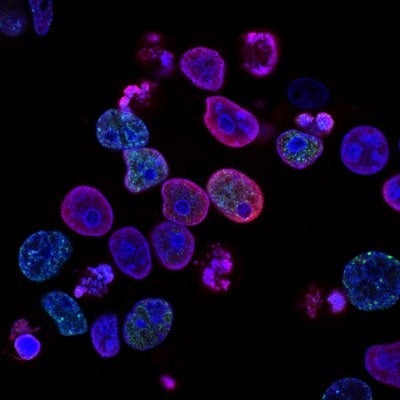
October 9, 2025
BIO 331: Parasitology
An introduction to the biology of parasitic organisms, including life cycles, infection pathways, and impacts on hosts.

March 5, 2025
BIO 396: Biology And Society
A seminar course dealing with the impact of biological discoveries on societal questions and with the social influences that affect biological discovery.
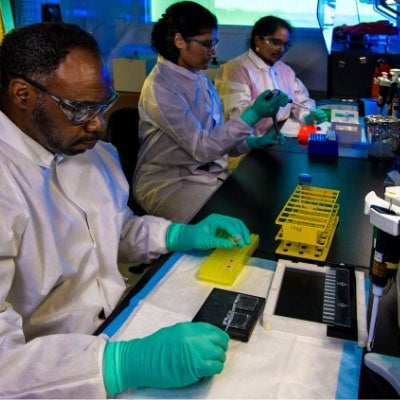
BPS 201: How Drugs Work
Drug actions, uses, and adverse effects of prescription and non-prescription medications, recreational drugs, and nutritional supplements.

September 23, 2025
CCJ 274: Criminal Justice System
The American system of criminal justice, general processing of cases, principal actors, study of theories of criminal law, and pretrial detention and sentencing.

CCJ 290: Introduction to Corrections
Examines the origins and development of the modern correctional institution; traditional methods of punishment and rehabilitation; pains of imprisonment, community corrections and reentry and current innovations.

COM 100: Communication Fundamentals
Integrates basic theory and experience in a variety of communication contexts including public speaking, small groups, and interpersonal communication.

October 17, 2025
COM 100: Communication Fundamentals
Integrates basic theory and experience in a variety of communication contexts including public speaking, small groups, and interpersonal communication.

March 5, 2025
COM 100: Communication Fundamentals
Integrates basic theory and experience in a variety of communication contexts including public speaking, small groups, and interpersonal communication.

COM 100: Communication Fundamentals
Integrates basic theory and experience in a variety of communication contexts including public speaking, small groups, and interpersonal communication.

November 5, 2025
COM 108G: Spaceship Earth: Communication and Sustainability
Through in-depth study of films, social media and readings students will explore the principles of sustainability and the communication challenges linking scientific evidence, public policies and individual behavior.

October 17, 2025
COM 108G: Spaceship Earth: Communication and Sustainability
Through in-depth study of films, social media and readings students will explore the principles of sustainability and the communication challenges linking scientific evidence, public policies and individual behavior.

March 5, 2025
COM 221: Interpersonal Communication
Examines basic theory and skills, including impart of perception, self-concept, listening, nonverbal messages, and language on interpersonal communication, including conflict, relationship development, friendship, family and romantic relationships.

COM 315: Environmental Dimensions of Communication
Investigation of individual and mediated sustainability messages, impact of communication on environmental knowledge, attitudes and behavior; design of communication campaigns to affect resource use, community engagement an.

October 17, 2025
COM 315: Environmental Dimensions of Communication
Investigation of individual and mediated sustainability messages, impact of communication on environmental knowledge, attitudes and behavior; design of communication campaigns to affect resource use, community engagement an.

March 5, 2025
COM 321G: Social Media and Interpersonal Communication
Explore theories and research on interpersonal communication and social media.

October 21, 2025
COM 321G: Social Media and Interpersonal Communication
Explore theories and research on interpersonal communication and social media.

March 5, 2025
COM 361: Intercultural Communication
Study of cultural similarities and differences as they affect communication within and across cultural boundaries.

COM 382: Communication Theory
A critical survey of social science based communication theories; an examination of the nature, processes and functions of communication theory in a variety of contexts.

COM 441: Race, Class, and Gender in the Media
Exploration of the complex dynamics of race relations and political discourse as contexted in the media.
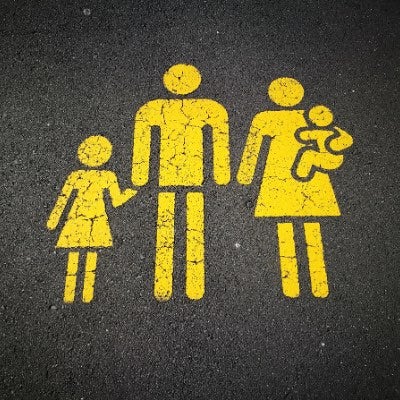
September 19, 2025
COM 442: Strategic Media Communication
Introduces strategic media relation tactics when responding to the media, specifically crisis communication situations.

CSC 106: The Joy of Programming
The art of problem solving through computer programming.
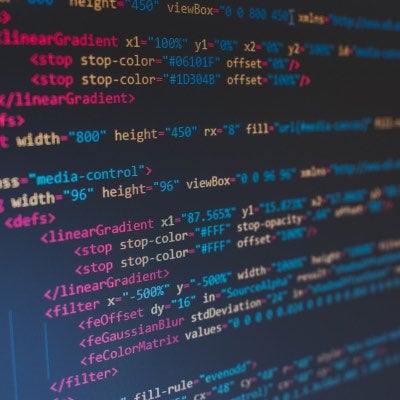
March 5, 2025
CVE 220: Mechanics of Materials
Mechanical properties of materials; analysis of members under axial, torsional, and transverse loads; stress and strain; beam deflections, and introduction to statically-indeterminate beams and buckling of columns.

DSP 181G: The Information Age: From Politics to Medicine
How big data affects our society, from advertising to politics to medicine.

EDC 150G: 50 Million Strong
This course will explore the concepts of health and physical literacy to benefit the healthy development of the whole child to create a society of 50 million people strong.

EDC 203: Mental Health First Aid
Mental Health First Aid teaches you how to identify, understand and respond to signs of mental illness and substance use disorders.
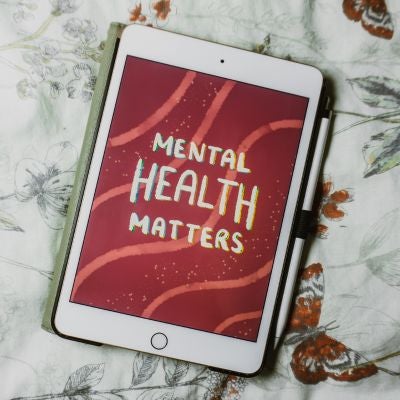
EDC 593: Professional Learning Communities(PLCs) in Pre-K-12 Settings
This course is designed to support teachers and administrators in PreK-12 schools to develop and facilitate professional learning communities (PLCs) on a timely and relevant topic in education.

EDS 500: Intro to Special Ed Interventions in Math & Content Areas
Provides future special educators with knowledge and skills to plan instruction for students with mild or moderate disabilities, including mathematics and content strategy instruction.

October 3, 2025
EDS 501: Collaboration and Co-Teaching
Provides future special educators with knowledge and skills to implement culturally responsive collaboration with family members and school based professionals.

EDS 575: Special Education Residency I
This clinical residency course will prepare special education graduate candidates for supporting students with disabilities at the elementary or secondary education levels.

EGR 404: Building Tools with Generative AI
This course offers practical experience in using generative AI models to build tools that automate and optimize tasks typically managed manually.

September 23, 2025
ENG 263: Introduction to Literary Genres: The Poem
Explore the art of lyric poetry as it has been practiced for thousands of years.
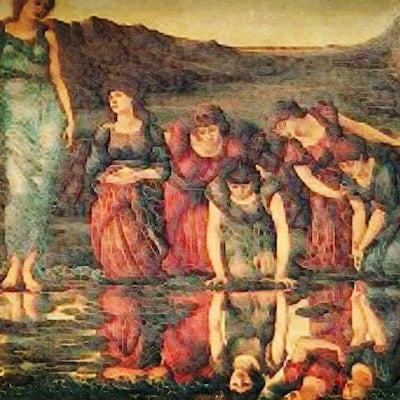
March 5, 2025
ENG 304: Irish Literature Into Film
Literary study of the particular conventions and evolution of one or more film genres (e.

FLM 101: Introduction to Film Media
Introduction to techniques of film practice, film history, genres, analysis of film texts, and reading of film images in their aesthetic, cultural, and literary context.

November 7, 2025
FLM 101: Introduction to Film Media
Introduction to techniques of film practice, film history, genres, analysis of film texts, and reading of film images in their aesthetic, cultural, and literary context.

October 7, 2025
FLM 101: Introduction to Film Media
Introduction to techniques of film practice, film history, genres, analysis of film texts, and reading of film images in their aesthetic, cultural, and literary context.

October 9, 2025
FLM 101: Introduction to Film Media
Introduction to techniques of film practice, film history, genres, analysis of film texts, and reading of film images in their aesthetic, cultural, and literary context.

October 15, 2025
FLM 101: Introduction to Film Media
Introduction to techniques of film practice, film history, genres, analysis of film texts, and reading of film images in their aesthetic, cultural, and literary context.

September 19, 2025
FLM 101: Introduction to Film Media
Introduction to techniques of film practice, film history, genres, analysis of film texts, and reading of film images in their aesthetic, cultural, and literary context.

October 22, 2025
FLM 206: History of Film III: The 21st Century
A survey of world cinema in the 21st century, examining the production, distribution and exhibition of narrative, documentary and experimental among other forms of film.

September 19, 2025
GWS 150: Introduction to Gender and Women’s Studies
Images of women, the theories and processes of socialization, historical perspectives, and implications for social change.

March 5, 2025
GWS 325G: International Women’s Issues
Focuses on women's rights in a global context, ideologies and practices that deny women equal status in society, including violence against women, freedom and democracy movements and women's rights.

September 19, 2025
GWS 350: Women and Health
This course offers a broad introduction to health issues that affect women’s bodies and minds, along with the historical, structural, political, economic, and cultural factors that influence our understanding of health and illness.

October 1, 2025
HDF 130G: “This is Us”: Individual and Family Development
Students in this course will learn about contemporary issues of human development, family systems, and cultural diversity based on the television show, This is Us.

March 5, 2025
HDF 150: Human Sexuality
Interdisciplinary approach to the study of individual and societal determinants in the development, integration, and expression of human sexuality and a code of sexual behavior.

September 19, 2025
HDF 205G: Money Skills for Life
An interdisciplinary framework to review important personal financial issues and to offer applicable tools to help students make good financial choices on earning, spending, borrowing, protecting, investing and saving money.

March 5, 2025
HDF 230: Couple and Family Relationships
Intimate romantic and family relationships are explored across the life span.

HDF 318G: Health and Wealth
This course will draw from the disciplines of economics, public policy, public health, and consumer behavior to offer a comprehensive understanding of the intersection of health and wealth.

HDF 357: Family and Community Health
Individual, family and community health concerns throughout the lifespan.

HDF 550: Relationship Mediation and Conflict Resolution
Students are introduced to mediation principles, phases of mediation, mediator¿s role, and standards of the profession.

HLT 101G: Perspectives on Public Health in the 21st Century
This course is designed to introduce students to current and controversial public health topics.
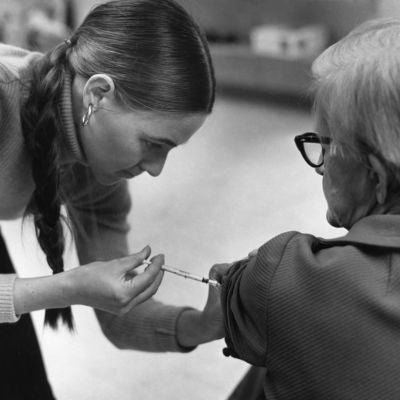
October 6, 2025
INE 315: (BUS) Legal Environment of Business
An introduction to the origins, framework, and concepts of the legal environment of business.

September 19, 2025
ITR 300: Career Plan:Concepts & Skills: Career Strategy and Coaching
This course will help each student develop a resume and professional communication skills, identify jobs and internships related to their major, build a LinkedIn profile, learn how to effectively apply and interview for positions, navigate a virtual interview, and benefit from one-on-one coaching that’s customized based on their unique needs and interests.

March 5, 2025
ITR 300: Career Plan:Concepts & Skills: Careers in Health & Healthcare
In this course, students will virtually meet with 6 health & health care employers known for hiring URI interns & full-time employees, explore their career interests and workplace values, identify the skills needed to achieve their goals, build their Resume, Cover Letter & LinkedIn profile, and practice interviewing skills in a Mock Interview.

ITR 300: Career Plan:Concepts & Skills: Personal Branding & Networking
Students in this course will build their professional brand utilizing the CliftonStrengths assessment.

ITR 300: Career Plan:Concepts & Skills: Pre-Health Career Pathways
Are you considering a career in healthcare but overwhelmed by all that goes into preparing? This course helps students clarify their career goals, understand prerequisites, and gain insight into the application process for health professional programs.

JOR 340: Public Relations Strategies
Principles and procedures in public relations: emphasis on role of the public relations practitioner as a specialist in communication; analysis of publications produced as a part of public relations.

November 5, 2025
JOR 340: Public Relations Strategies
Principles and procedures in public relations: emphasis on role of the public relations practitioner as a specialist in communication; analysis of publications produced as a part of public relations.

March 5, 2025
KIN 122: Human Anatomy and Physiology
Structure and function of organ systems of the human body with emphasis on applications to human health.

KIN 123: Living Well: The Applied Science of Health
Scientific basis of personal health and wellness.

KIN 222: Medical Terminology
Framework for medical terminology used by health care professionals.
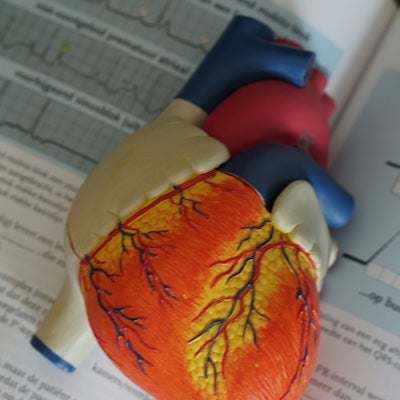
September 19, 2025
KIN 243: Prevention And Care Of Athletic Injuries
Introduces concepts of injury prevention, recognition and management of athletic injuries, accelerated rehabilitation, and emergency management in athletic settings.

March 5, 2025
KIN 381: Exercise Behavior and Psychosocial Outcomes
Review of theories of how psychological factors and interventions can affect exercise behavior and examine the psychosocial outcomes that are influenced by engaging in exercise both acutely and chronically.

September 19, 2025
LAR 201: Survey of Landscape Architecture
Introduction to landscape design theory and composition as an applied art form.

March 5, 2025
LHR 532: Seminar in Labor and Employment Law
Advanced seminar to review and evaluate current issues and changing trends in selected aspects of labor and employment law.

LHR 546: Negotiation and Alternative Dispute Resolution
Examination of the interpersonal dynamics of negotiations and conflict resolution processes, including interest-based or collaborative bargaining in a variety of contexts; e.

September 19, 2025
MBA 530: Legal Environment of Business
Coverage includes both substantive and procedural rules of law in the civil and administrative law field with emphasis on business, regulation, societal, and ethical issues.

MBA 574: Consulting and Management Practice
Review of the theory and practice of effective consulting and development of consultation skills.

October 3, 2025
MBA 578: Human Resource Development
Students will learn about theories of organizational and individual change in the context of three HRM functions: job analysis, performance management and training.

March 5, 2025
MCE 262: Statics
Newton's laws of force systems in equilibrium and their effects on particles, systems of particles, and rigid bodies.

October 24, 2025
MCE 263: Dynamics
Kinematic and kinetic study of motion of particles, systems of particles, and rigid bodies, acted upon by unbalanced force systems, using both scalar and vector methods; development of methods of analysis based on the direct application of Newton's laws, work-energy and impulse-momentum principles.

March 5, 2025
MGT 201: (BUS 340) Management Foundations: Building Better Businesses
Management concepts, processes and practices with an emphasis on inclusion, agility and evidence based decision making: organizational behavior; individual differences and elements of diversity; interpersonal dynamics and communication; work design, motivation and outcomes; social justice and worker voice; structure (including business functions) and culture.

MGT 341: (BUS) Organizational Behavior
Introduction to organizational behavior; focus on individual, interpersonal, team and organization factor, and how these shape individuals behaviors at work.

October 9, 2025
MGT 341: (BUS) Organizational Behavior
Introduction to organizational behavior; focus on individual, interpersonal, team and organization factor, and how these shape individuals behaviors at work.

March 5, 2025
MKT 265: Marketing Principles
An introduction to marketing from a managerial viewpoint, focusing on brand management and marketing strategy.

MKT 367: Marketing Research
Describes the nature and scope of marketing research activities.

October 9, 2025
MSL 101: Introduction to Leadership I
Introduction to leadership dimensions while presenting a big picture understanding of a leadership development program.

March 5, 2025
MSL 202: Leadership and Team Building
Examines the challenges of leading teams in the complex contemporary operating environment (COE).
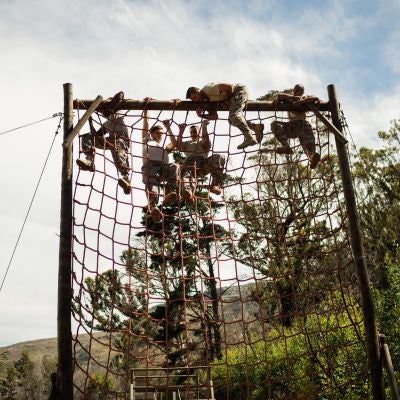
MSL 301: Advanced Leadership Management
Integrates the principles and practices of leadership and personal development to prepare students for the U.
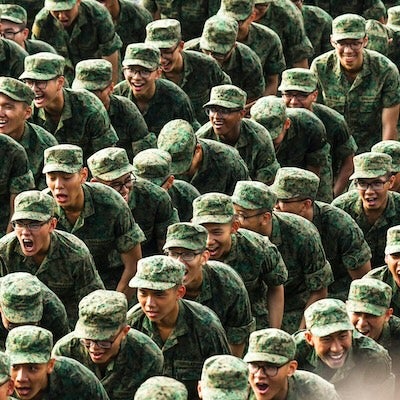
October 3, 2025
MTH 107: Introduction to Finite Mathematics
Concepts and processes of modern mathematics concerned with sets, the theory of probability, and statistics.

March 5, 2025
MUS 101: Introduction to Music
Fosters a better understanding and appreciation of the world's great music.

MUS 101: Introduction to Music
Fosters a better understanding and appreciation of the world's great music.

October 9, 2025
MUS 106: History of Jazz
The nature and origin of jazz and its development as an American folk idiom: European and African heritages, blues, ragtime, dixieland, boogie-woogie, swing, bop, cool, funky, gospel, jazz-rock, free-form, and progressive.
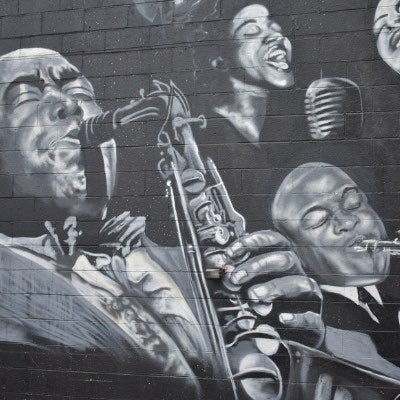
March 5, 2025
NUR 203: Comprehensive Health Assessment
Introduces the techniques of history taking and systematic health assessment of individuals across the life span.

November 10, 2025
NUR 213: Pathophysiology
Examination of basic concepts of pathophysiology and the related levels of prevention, etiology, pathogenesis, and clinical manifestations underlying alterations according to biological processes across the life span.

NUT 207: General Nutrition
Fundamental concepts of the science of nutrition with application to the individual and community.

March 5, 2025
NUT 207: General Nutrition
Fundamental concepts of the science of nutrition with application to the individual and community.

November 25, 2025
NUT 207: General Nutrition
Fundamental concepts of the science of nutrition with application to the individual and community.

October 21, 2025
PHL 101: Critical Thinking
Identification, formulation and evaluation of both inductive and deductive patterns of reasoning.

March 5, 2025
PHL 103: Introduction to Philosophy
Pursues such basic questions as: What is a person? What is knowledge? Are we free? What is moral right and wrong? Does God exist? What is the meaning of death? (Lec.

September 19, 2025
PHL 110G: Love and Sex
This course considers the natures and ethics of love and sex by asking questions like: What is love? What counts as sex? What constitutes consent? What counts as infidelity? (Lec.

March 5, 2025
PHP 300: Practical Calculations for the Pharmacist
This course provides training on performing pharmaceutical calculations in both outpatient and inpatient settings for students starting Advanced Pharmacy Placement Experience (APPE) rotations or preparing for licensure.

September 19, 2025
PLS 132G: Sustainable Agriculture, Food Systems, and Society
Food is essential to life, and a foundation of civilization.

March 5, 2025
PLS 150: Plants, People and the Planet
Fundamentals of plant biology, emphasizing the structure, physiology, and ecology of vascular plants common to gardens and landscaped environments.

PRS 100: Introduction to Public Relations
Examine and explore public relations principles, concepts and emerging trends associated with the role of the PR practitioner.

PRS 340: Public Relations Strategies
Principles and procedures in public relations: emphasis on role of the public relations practitioner as a specialist in communication; analysis of publications produced as a part of public relations.

PRS 340: Public Relations Strategies
Principles and procedures in public relations: emphasis on role of the public relations practitioner as a specialist in communication; analysis of publications produced as a part of public relations.

November 5, 2025
PSC 274: Criminal Justice System
The American system of criminal justice, general processing of cases, principal actors, study of theories of criminal law, and pretrial detention and sentencing.

March 5, 2025
PSC 492: Controversies in Political Science
Significant questions persist in the field of political science.

September 19, 2025
PSY 103: Towards Self-Understanding
Individual and social problems of normal persons.

September 24, 2025
PSY 113: General Psychology
Introductory survey course of the major facts and principles of human behavior.

PSY 255: Health Psychology
Investigates the relationship between behavior and health; emphasizes the theory and science of health behavior change; explores specific behaviors and behavior change strategies from an individual and public health perspective.

September 19, 2025
PSY 335: The Psychology of Social Behavior
Conceptual and empirical analyses of individual behavior in social contexts; attention to social motivation, attitude development and change, liking, conformity, aggression, altruism.

September 24, 2025
PSY 335: The Psychology of Social Behavior
Conceptual and empirical analyses of individual behavior in social contexts; attention to social motivation, attitude development and change, liking, conformity, aggression, altruism.

October 22, 2025
PSY 399: Introduction to Multicultural Psychology
Introduction to multiculturalism as major paradigm.

March 5, 2025
PSY 442: Disability in Childhood and Adolescence
Introduction to disability in childhood and adolescence.
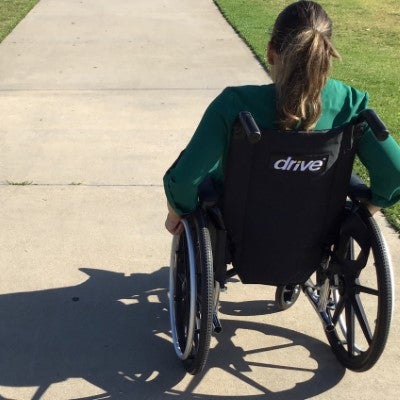
September 24, 2025
SOC 100: Introduction to the Sociological Perspective
Sociological approaches to inequality and contemporary social issues regarding race, ethnicity, class, gender.

March 5, 2025
SPA 320: Critical Studies in Spanish Cinema
Study of major Spanish film genres and of prominent Spanish film directors.

September 23, 2025
STA 220: Statistics In Modern Society
Introductory statistics exploring and understanding data, relationships between variables, randomness and probability.

March 5, 2025
STA 220: Statistics In Modern Society
Introductory statistics exploring and understanding data, relationships between variables, randomness and probability.

October 24, 2025
STA 308: Introductory Statistics
Descriptive statistics, presentation of data, averages, measures of variation.

November 18, 2025
STA 308: Introductory Statistics
Descriptive statistics, presentation of data, averages, measures of variation.

October 14, 2025
STA 409: Statistical Methods in Research I
Same as STA 308, but is for students who have better mathematical preparation.

March 5, 2025
SUS 108G: Spaceship Earth: Communication and Sustainability
Through in-depth study of films, social media and readings students will explore the principles of sustainability and the communication challenges linking scientific evidence, public policies and individual behavior.

September 29, 2025
SUS 108G: Spaceship Earth: Communication and Sustainability
Through in-depth study of films, social media and readings students will explore the principles of sustainability and the communication challenges linking scientific evidence, public policies and individual behavior.

October 17, 2025
SUS 315: Environmental Dimensions of Communication
Investigation of individual and mediated sustainability messages, impact of communication on environmental knowledge, attitudes and behavior; design of communication campaigns to affect resource use, community engagement an.

September 29, 2025
SUS 315: Environmental Dimensions of Communication
Investigation of individual and mediated sustainability messages, impact of communication on environmental knowledge, attitudes and behavior; design of communication campaigns to affect resource use, community engagement an.

October 17, 2025
THE 338G: Ethical Dilemmas in Contemporary Theatre
Exploration of ethical dilemmas raised by contemporary dramatic works and the history of theatre as a tool for social activism.

March 5, 2025
THE 383: History of the Modern Theatre
Modern theatre and drama from 1880 to the present.

September 19, 2025
UCS 160: Success in HigherEd Learning Environments
Analyze learning and studying in college settings; Assess college learning needs, apply effective study and work management strategies to academics, and improve metacognitive awareness and academic skills.

WRT 290: Writing with AI
Learn AI-assisted tools for effective academic, professional, and public writing.

March 5, 2025
WRT 290: Writing with AI
Learn AI-assisted tools for effective academic, professional, and public writing.

October 14, 2025
WRT 332: Technical Writing
Work on writing projects that suit practical needs, share specialized knowledge with diverse audiences, and implement ethical practices of technical communication.

November 10, 2025
WRT 332: Technical Writing
Work on writing projects that suit practical needs, share specialized knowledge with diverse audiences, and implement ethical practices of technical communication.

WRT 332: Technical Writing
Work on writing projects that suit practical needs, share specialized knowledge with diverse audiences, and implement ethical practices of technical communication.

October 10, 2025
WRT 332: Technical Writing
Work on writing projects that suit practical needs, share specialized knowledge with diverse audiences, and implement ethical practices of technical communication.

September 19, 2025




